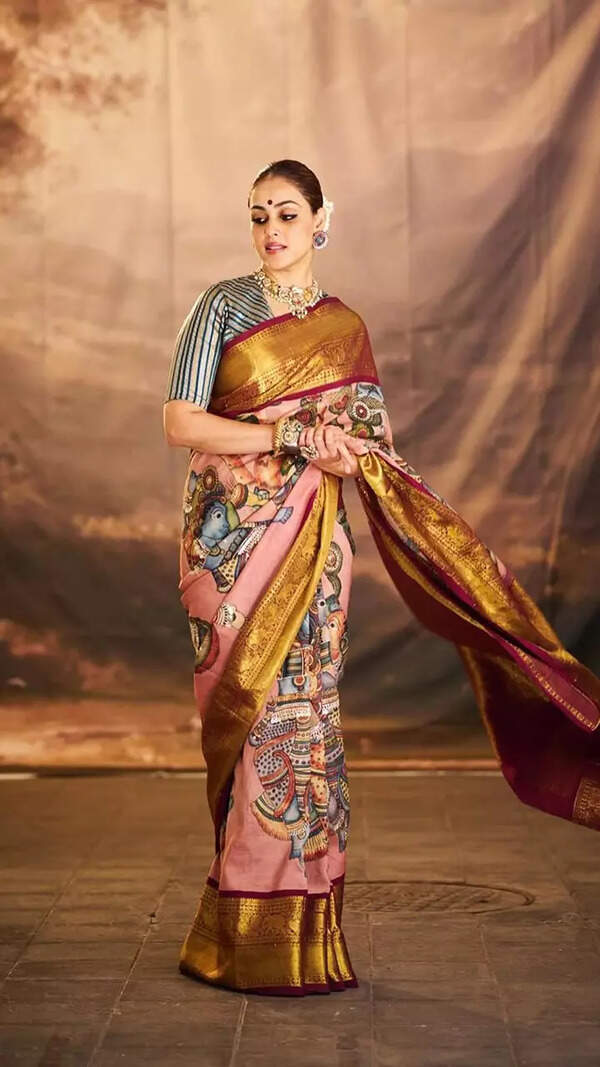- News
- entertainment
- bengali
- movies
- 10 years of ‘Autograph’: How Srijit’s film became a perfect reunion of arthouse and mainstream cinema
Trending
This story is from October 14, 2020
10 years of ‘Autograph’: How Srijit’s film became a perfect reunion of arthouse and mainstream cinema
The film, with all its song-and-dance mainstream elements, has its moments that haunt the viewers to question how success and the craving for it can change a person’s ethical stance to survive in a world of monopoly and cold-blooded ambition.
It isn’t an easy task to hold a mirror to the industry and see its reflections on-screen. The images, more often than not, give blurred, distorted or even exaggerated versions. But ‘Autograph’, the directorial debut of Srijit Mukerji, didn’t fall prey to refractions. The film, with all its song-and-dance mainstream elements, has its moments that haunt the viewers to question how success and the craving for it can change a person’s ethical stance to survive in a world of monopoly and cold-blooded ambition. As ‘Autograph’ completes a decade today, let’s take a look at the film’s significant aspects that makes it a enjoyable watch even after 10 years.

The film is about the life of superstar Arun Chatterjee (Prosenjit). It’s about how he agrees to act in and even produce a film made by debutant director Shubho (Indraneil Sengupta). Benevolence, of course, isn’t the reason for Arun to agree to do this movie that’s a tribute to ‘Nayak’ and ‘Wild Strawberries’. He wants total control, is ready to ghost-direct to prove to the world that he alone is capable of making a film a hit without the services of an experienced director or producer. When Shubho gets a lifetime opportunity to direct his dream debut, he casts live-in partner Srinandita (Nandana Sen) opposite Arun. As the film progresses, so does Shubho’s vaulting ambition that reaches a peak when he decides to use Arun’s confessional tape to market his film.


And, of course, there is Prosenjit Chatterjee — the actor who plays the on-screen superstar. On a surface level, Prosenjit plays a man who is successful (he is the industry as he describes himself) and yet has to struggle in his own way to stay on where he is. The angst of a superstar who can’t lead the life he wants to because of his stature, the loneliness that success comes with, the vulnerability deep down that’s resulted from negation and camouflaged well by a sense of super confidence — it’s no mean task to portray so many shades in a character. There’s hardly any other actor in Tollywood today who could have carried off this role with as much charisma as Prosenjit.
Indraneil, who has won a lot of accolades for his earlier performances, plays a film-maker but doesn’t resemble the one he had played in ‘Angshumaner Chhobi’. Indraneil does a decent job of being someone who transforms to become the quintessential go-getter in the industry and doesn’t think twice about manipulating people and their emotions. Nandana brings a sense of freshness to the film and portrays a well-etched-out character, who remains connected to her basic emotions even while being dragged into the ruthless world of success.

Debajyoti Mishra’s music, of course, is a highpoint of the movie. While Anupam Roy’s ‘Amake amar moto thaakte dao’ has become Kolkata’s anthem, Rupam Islam’s ‘Benche thakar gaan’ and Shreya Ghoshal’s ‘Chol raastaye’ and ‘Uthche jege shokalgulo’ are no less popular. Priyam Mukherjee’s version of ‘Chol raastaye’ appeals because of its depth of rendition. Special mention needs to be made to lyrics penned by Anupam Roy (Amake amar moto thaakte dao) and Srijato (Chol raastaye). Debajyoti’s background score has also been interestingly done. Shoumik Halder too deserves a pat on his back for cinematography. The film looks glossy and is shot well.

What, however, is a very tricky area for the film is the reference to ‘Nayak’. ‘Autograph’ worked even for those who haven’t watched ‘Nayak’. But for those who’ve watched ‘Nayak’, Srijit’s film enters a dangerous territory. While it gives a lot of layers to the film, it also teases the audience to compare. Compare not just Prosenjit with Uttam Kumar and Nandana with Sharmila Tagore but also the director’s capacity to reinterpret ‘Nayak’ in a contemporary space. If some compare Nandana’s specs with the one used by Sharmila Tagore in ‘Nayak’, others would evaluate Srijit’s use of a dream sequence vis-à-vis ‘Nayak’s cult sequence. So many elements from ‘Nayak’ just spill over to Arun’s life, creating an unnecessary pressure on the maker and his cast to live up to the cult movie. Having ‘Nayak’ as a reference point is like a double-edged sword for the director, especially since he has carefully incorporated a lot of mainstream elements into his script.
However, ‘Autograph’ stands out as a film that tries hard to effortlessly marry arthouse with mainstream cinema and the marriage turned out to be a happy union at the box-office too.
End of Article
FOLLOW US ON SOCIAL MEDIA
Visual Stories
Tired of too many ads?








